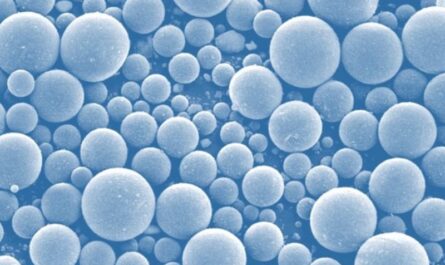With growing concerns over use of chemical pesticides and its impact on the environment, biological seed treatment has emerged as one of the most promising sustainable solutions for crop protection. Biological seed treatments utilize beneficial microorganisms that help plants fight diseases and boost yields without causing any harm. Let us explore more about various aspects of biological seed treatment in this article.
What is Biological Seed Treatment?
Several biological agents such as bacteria, fungi and other microbes have shown potential to control diseases and promote plant growth when applied to seeds before sowing. Biological Seed Treatment involves coating seeds with specific strains of these beneficial microorganisms to help crops protect themselves against diseases and pests. When seeds treated with biological agents germinate and grow, the microbes colonize the rhizosphere and phyllosphere of crops to suppress pathogens. Some key microbes used in biological seed treatments include Trichoderma spp., Bacillus spp., Pseudomonas spp. and Streptomyces spp.
Modes of Action
Biological control agents used in seed treatments offer disease protection through various modes of action:
– Competition for Nutrients and Space: Many biocontrol microbes are fast growing and crowd out pathogenic microbes by competing for nutrients and colonization sites on plant surfaces and roots.
– Production of Antibiotics: Several biocontrol agents secrete antimicrobial compounds that directly inhibit or kill plant pathogens. For example, Bacillus and Pseudomonas produce a wide range of antibiotics.
– Induced Systemic Resistance: Specific strains of Pseudomonas and other bacteria can induce plant’s own defense mechanisms against a broad spectrum of diseases through mechanisms like signal molecule production.
– Parasitism and Hyperparasitism: Some fungi like Trichoderma are parasitic or hyperparasitic on other fungi and directly prey on plant pathogens by invading their cell structure.
– Scavenging Iron: Fluorescent pseudomonads produce siderophores that chelate iron needed by pathogens for survival, thereby suppressing diseases.
Disease Management and Yield Benefits
Depending on the biocontrol microbe used, seed treatment provides effective control of key soilborne, seedborne and foliar diseases. Some diseases where biological seed treatments have shown great promise include:
– Fusarium wilt/root rot: Trichoderma isolates have demonstrated 60-80% control of Fusarium wilt of tomato, potato, etc.
– Pythium damping-off: Bacillus and Pseudomonas based products are effective against Pythium damping-off of various vegetables, cereals and oilseeds.
– Rhizoctonia root rot: Streptomyces and Trichoderma provide 50-70% control of Rhizoctonia root rot of cotton, potato, soybean etc.
– Early blight of tomato: Pseudomonas fluorescens based formulations help manage early blight up to 50%.
Various studies have reported 10-30% increase in crop yields with the use of biological seed treatments compared to untreated seeds, due to better seedling establishment and plant vigor. The yield benefits sustain over years of continuous use.
Environmental Safety and Sustainability
Use of plant growth promoting microbes and biopesticides in seed treatment helps address the pressing issue of environmental pollution and toxicity associated with chemical pesticides. Biological seed treatments have several advantages over chemical alternatives:
– No Toxic Residues: Beneficial microbes used do not leave any toxic residues in soil, water or food. They decomposed readily after application.
– Targeted Activity: Biocontrol agents have very specific modes of action against target pathogens and do not harm non-target organisms.
– Improved Soil Health: Regular use of biopesticides and plant growth promoting microbes improves soil organic matter content and enhances activity of native beneficial microflora.
– Resistance Management: Low risk of target pathogens developing resistance to biocontrol agents since they have multiple modes of attack and can adapt rapidly.
The Future Ahead
With growing validation of disease management ability and consistency in yield response, biological seed treatment is expected to play a pivotal role in transition to sustainable agricultural systems worldwide. Though initial cost of these products is generally higher than chemicals, long term benefits outweigh the costs. As volume of production increases, prices are also anticipated to come down significantly. With further insights on combination of strains, formulation optimization and integrated use with other organic methods, the future for biological seed treatment looks bright globally.
*Note:
1. Source: Coherent Market Insights, Public sources, Desk research
2. We have leveraged AI tools to mine information and compile it



